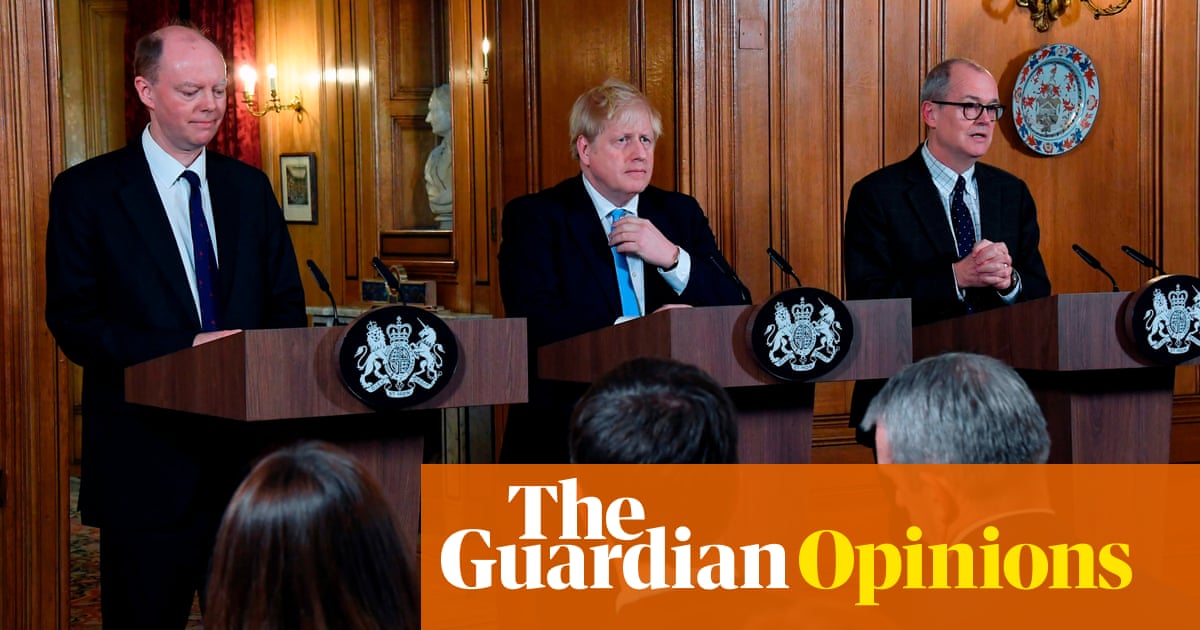
s children across the UK return to school, to classrooms of varying ventilation and not-yet-necessarily-vaccinated teachers, as nurses swallow their real-terms pay cut and carry on working, a pattern emerges: this is a government crossing the road to start a fight.
It would not have involved a vast recalibration to add teachers to the priority list for vaccinations. Indeed, given that the vaccine is all that stands between us and the pandemic worsening, and as we watch schools reopening with bated breath to see what it does to transmission, it would have been eminently plausible to make the public health case for giving teachers a jab, without even muddying the waters with questions of gratitude or how left wing their unions are.
A decent pay rise for nurses, meanwhile, would not have heralded the imminent fiscal collapse that Matt Hancock hints at. You don’t need to compare a hypothetical pay boost with the haphazard extravagance of the test-and-trace system to see that: all you need to know is that, in 2010, nurses’ pay was £2,500 higher than today, adjusted for inflation; paramedics were on £3,330 more, porters £850.
Not even the most passionate proponents of austerity complained back then that the problem with the public finances was overpaid frontline medics. Instead, they talked about belt-tightening and pay freezes, culling backroom staff while protecting the lowest paid. It wasn’t embarrassment that prevented David Cameron and George Osborne from explicitly singling out nurses’ salaries as an unaffordable luxury: it was the fact that a statement so plain could be held up to the light, and evaluated for accuracy. Pragmatism is a political construct, and what Boris Johnson’s government is protecting is not the supply of vaccines or the health budget, but the terms and priorities of the debate.
There is certainly a degree to which insulting teachers and nurses is a tactical move by the government – to squeeze the opposition. The spectre of industrial action – the Royal College of Nursing has agreed a £35m fund to support staff in the event of a strike – demands the full-throated support of Labour, or else the party will be in a very uncomfortable position. Correctly predicting that the opposition would manage to find discomfort even in a strike it agreed with – currently the shadow health secretary, Jon Ashworth, has only hinted that he’s in support of nurses – the Conservatives have spotted an easy win.
It is a peculiarity of the age that even if the Conservatives end up U-turning on the 1% pay rise, Labour could still come off worse from the row if they are perceived as indecisive about their values, where the Tories are just indecisive in their maths.
More importantly, though, there are two models for recovering from a seismic economic event, be it a war or a pandemic. One is the roaring 20s recovery, in which the pent-up demand of animal spirits unleashes an explosion of activity – prosperity and fun colliding in a chemical reaction that is larger than either. The other is a new social contract, exemplified by the UK after the second world war, in which epic destruction and loss forced a new understanding of what was important in life, including but not limited to a new conception of gratitude, mutual responsibility and shared humanity.
Of course, it’s not just a coin-flip. What leads to one approach over the other is seeded before the calamity that prompts it and relates to deeper structural forces. Europe, recovering from both war and influenza, could never have had the same roaring 20s as the US; the Labour landslide of 1945 and its great creations, the NHS and the provision of mass social housing, came out of William Beveridge’s serious interrogation of what made a decent society, not merely a war-weary nation having a new conversation.
Nevertheless, catastrophes inescapably reorient society’s assumptions and ideals. It starts with an outpouring of gratitude towards people who help others and behave selflessly. However amorphous this is, it’s keenly felt: before the attempt to repurpose clapping for carers as “clapping for heroes”, the Thursday night event was powerfully moving.
Self-sufficiency and the survival of the fittest correspondingly fall out of fashion, and there is a shift in the generalised perception of a person’s value, away from how economically productive they are, towards what that they actually do. If these emotions get anywhere close to an iteration in policy, they are tremendously expensive: they lead to questions about the minimum wage, about dignity and empowerment at work, about what “low-skilled labour” actually means. Once these arguments reach full strength, counterpoints about “affordability” can’t lay a glove on them.
The only way to avoid such a post-crisis reckoning is to conjure an individualist alternative, where we all recover for ourselves with carnivalesque hedonism, while simultaneously working to reset the old norms – where pay rises can’t just be modest, they have to be minuscule; where apparently altruistic professionals are really in it for themselves, and must be brought to heel.
Another explanation has been floated for the NHS pay debacle: that this is straight out of the playbook of the new right, the world of closed Facebook groups and manufactured culture wars, in which there must always be an enemy within, and who better than society’s saintliest? I think it would be a long shot to try to demonise a nurse. Rather, public servants are being used as ciphers, to re-establish parsimony as the unfortunate necessity of a modern state. The government’s miscalculation, here, is that they have failed to notice a new allegiance, between those public servants and the people they serve.
Zoe Williams is a Guardian columnist












